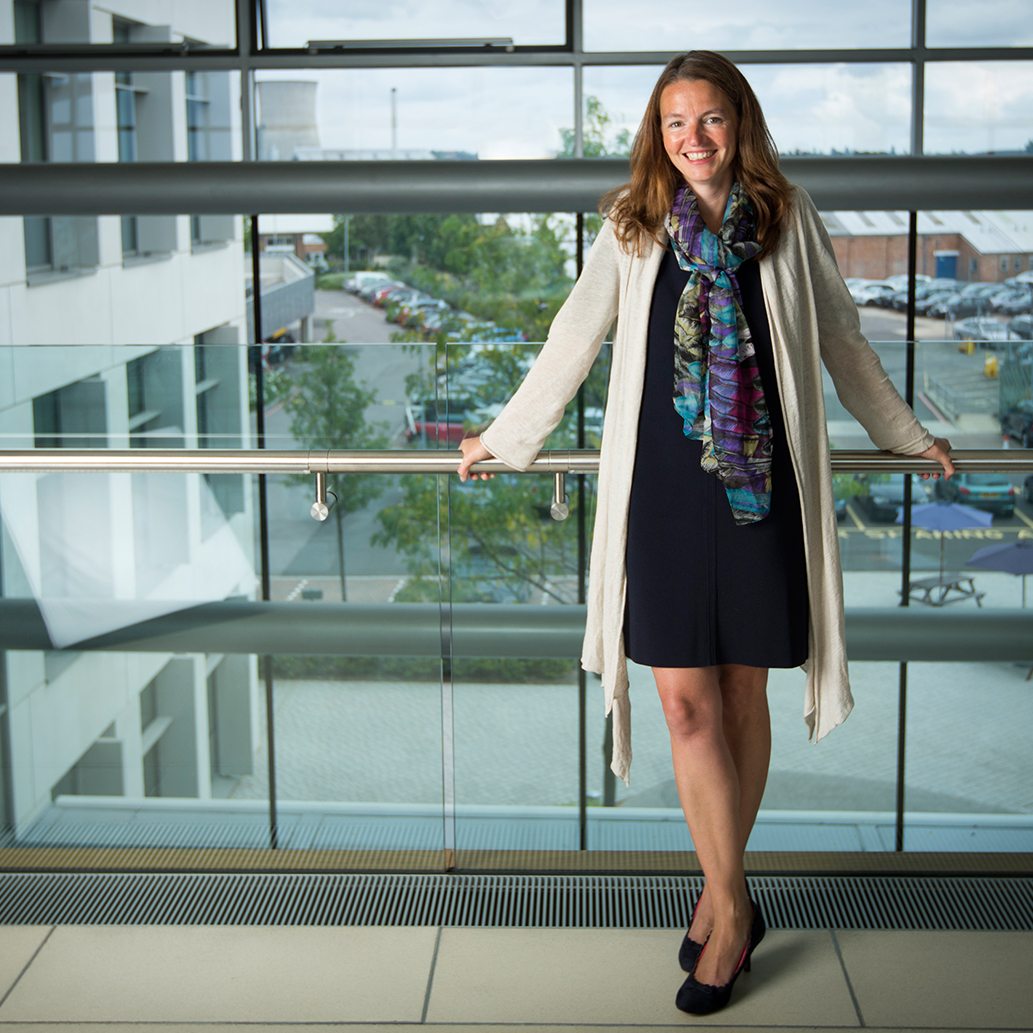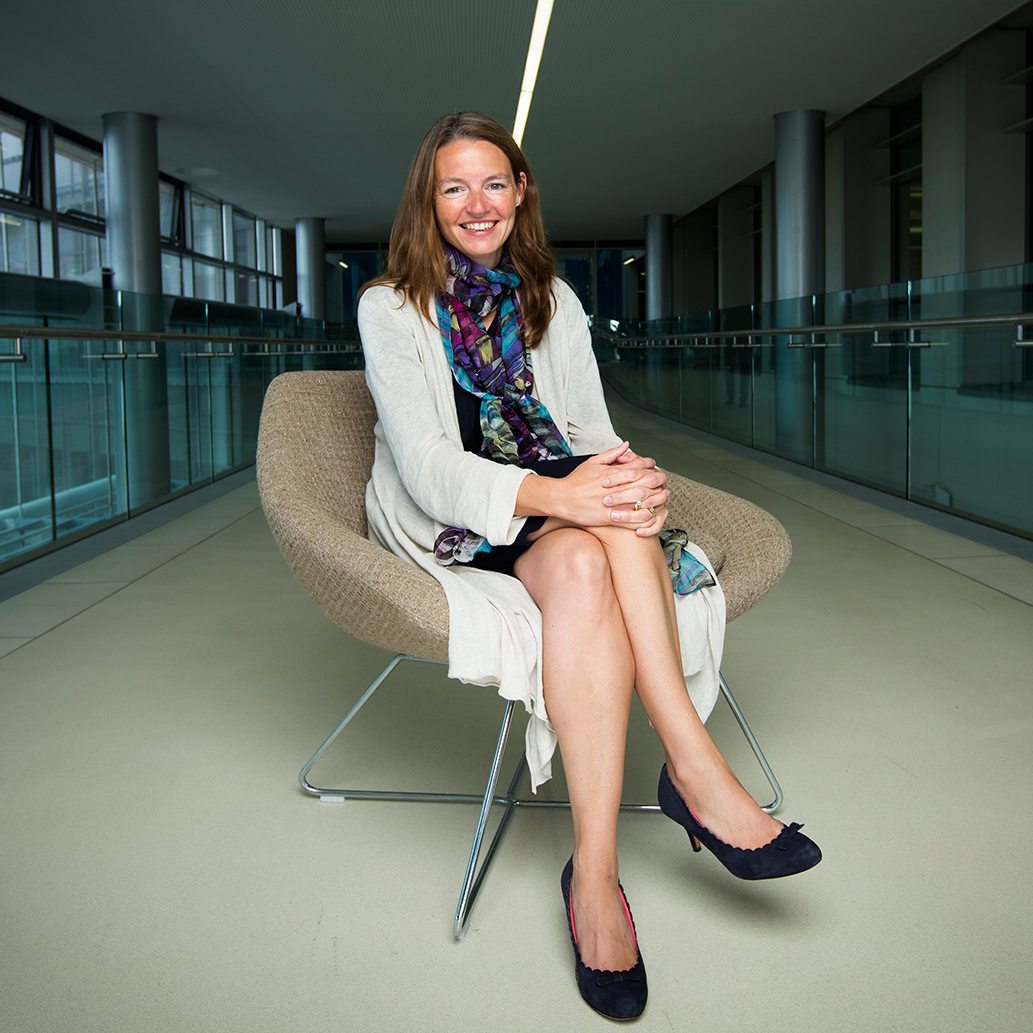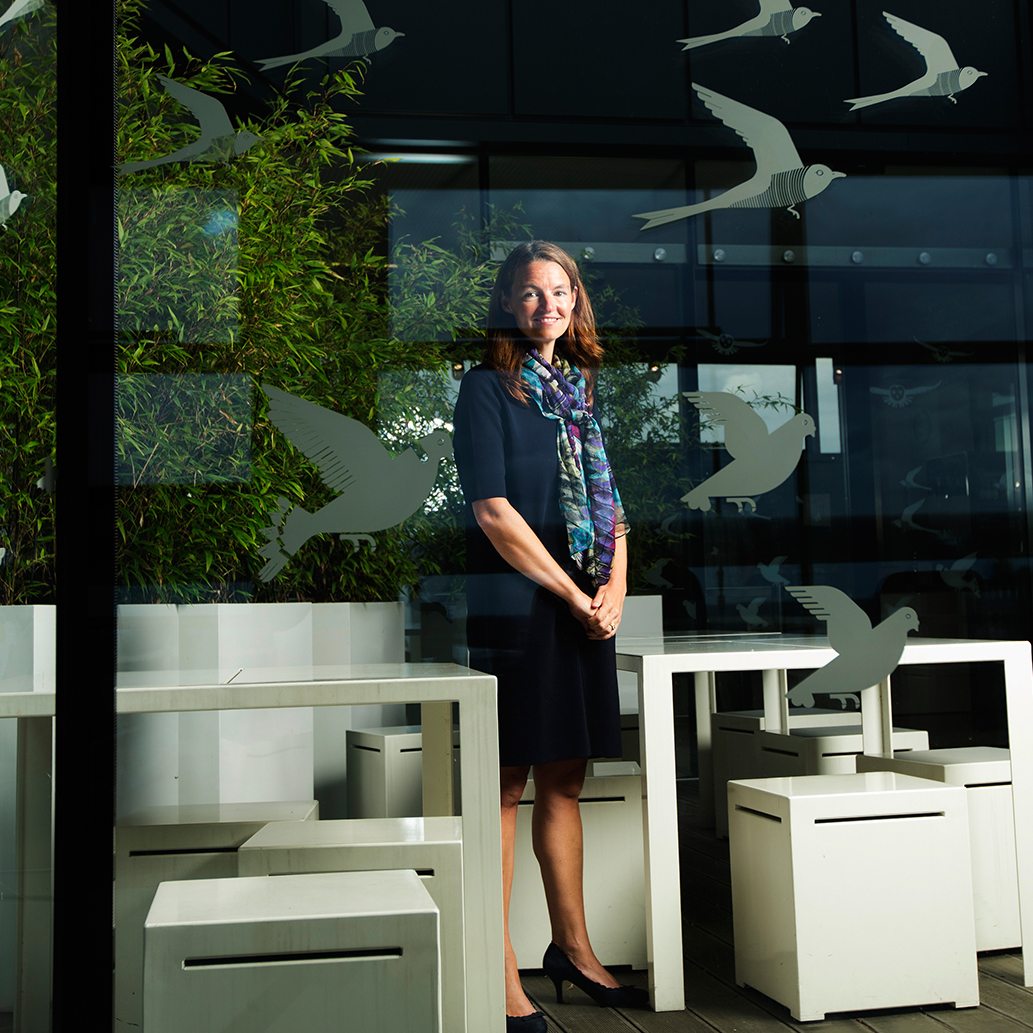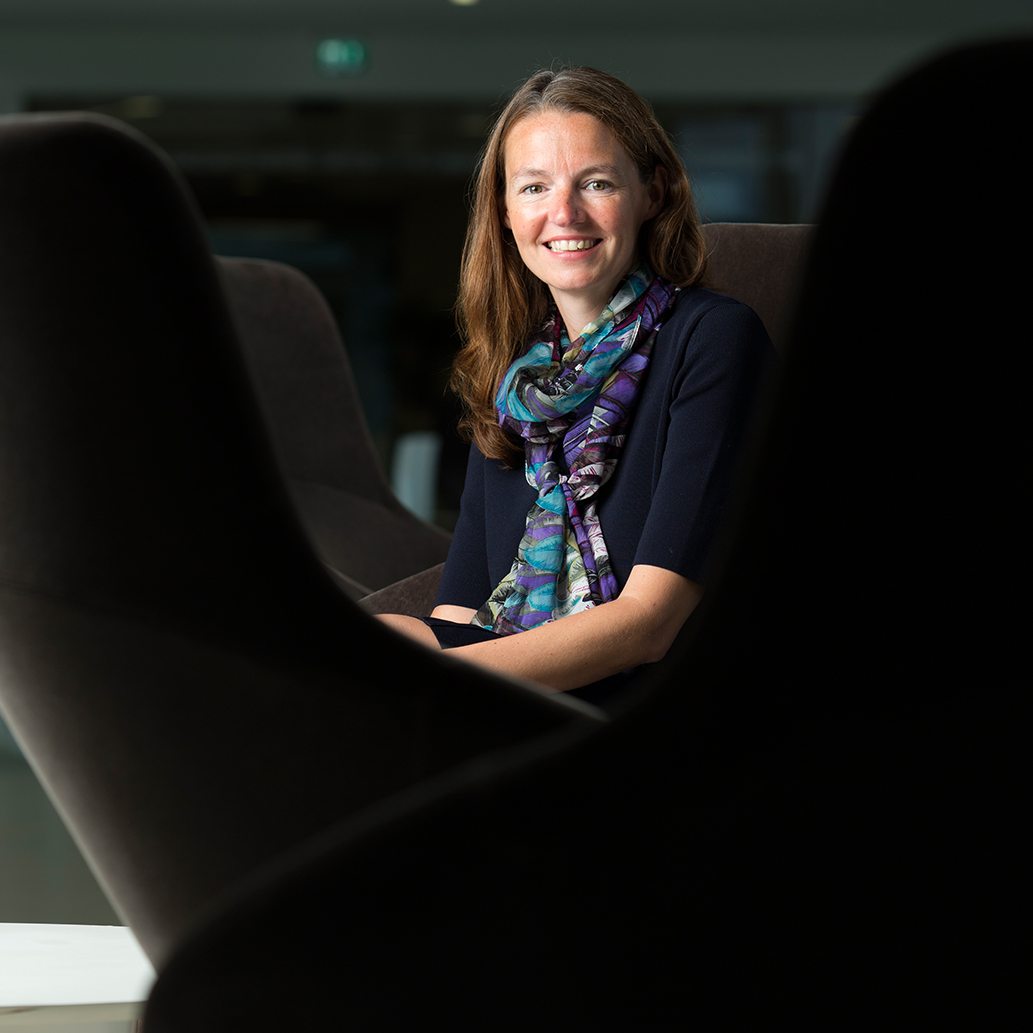Sally, give us an idea of your early life and career, and why HR caught your imagination as a career path?
Although I’m not your standard HR director in terms of career path, I did a very traditional degree that you would relate with HR, followed by a Masters degree in Industrial Relations at Warwick University. Following that, I went to work as a researcher for Incomes Data Services for a couple of years. There I gained a lot of experience through the research, in a whole range of related subjects, and learned a lot from the people I met and worked with. I then went into consultancy at Arthur Andersen (now Deloitte), where I started to specialise in compensation and benefits. I was able to work with clients across a really interesting rang?e from Japanese manufacturing companies to investment banking, and I spent a couple of years there as a consultant and then got the opportunity to go in-house at Tesco before going into telecoms.
I joined BT in 1999 as their Executive Reward Manager at the time of the internet bubble and everything was going crazy. BT was buying companies and setting up all over the place, I went to New York to support the purchase of a business over there, and it was a really exciting time. When the dotcom bubble burst, this had a huge affect on BT. It meant a period of significant restructuring, and I embarked on a nine month project in BT’s mobile phone division preparing the division to be spun off from the rest of the group. My focus in the project was to lead the due diligence and set up all compensation and benefit?related issues, from pensions to payroll. The project was intense and complicated and surrounded all sorts of compensation plans for the establishment of the new mobile company which eventually became known as O2. This was actually a lot of fun, as O2 enjoyed some early momentum as a new business and continued to expand. Despite predictions and expectations, O2 emerged as a successful European telco organisation, leading to a takeover by Telefónica in January 2006.
For me and my peers, the Telefónica takeover was a hectic and frenzied period and from a compensation perspective, it was about figuring out how to deal with the situation, how to manage the impact of the takeover the incentive plans and how to retain our people, ensuring that they felt settled and focused as the two businesses merged, and then around 2008 I was asked to be the Global Head of Reward for Telefónica. I really wondered how that would work, I worked part-time because I had two small children and I simply couldn’t relocate to Madrid. So I split my time between the two locations, I had a diverse team of different nationalities, from different locations sitting around the table, and I think we all learnt a lot very quickly as a team. For three years I went back and forth from Madrid to Slough. It was a great experience and I learnt a lot about Telefónica as a global business and about the benefits of leading a diverse team. I also added organisation design to my responsibilities, as well as international mobility. Autumn last year, Telefónica then took the decision to restructure and create four new divisions; a digital services division, global resources division, and two geographical divisions ? Europe and Latam. I took on the role of HR Director for the European business, my first truly generalist HR Director role, so… in at the deep end!

Give us an idea of what it is like to simultaneously sundown the past and bring in the new face of the organisation to take the business forward.
It was an experience! In the business, there were no rules on how to do things, we were a small, corporate centre and we had to hire people for roles, such as treasury, because these were activities provided by BT in the past, and you had people from all different industries who joined to provide new skills that we didn’t have in the business. Surprisingly, it gelled very well. We ran a major culture programme called “Project Breathe,” designed to bring O2 alive and, as part of this, we held workshops with a wide mix of people around the business, to ask them what they thought O2 stood for. We came up with four values, Bold, Open, Clear and Trusted, and it was the job of the employees in the workshops to say what they thought these values meant.
It produced a really sustainable piece of culture change and we’ve talked about it ever since, how successful it was in bringing the O2 brand to life internally, as well as externally, but it also helped us sustain our values, meaning that new people coming into the business knew exactly what those values were. I’ve always wondered why it was so successful when so many other culture initiatives don’t succeed. It was nothing to do with it being a fancy, engineered programme, but it created a buzz, got people talking about O2 and its values and it really engaged.

What’s your gut feeling about why it worked?
I think the change of becoming part of a new company separate from BT was unsettling for people and so they were looking to grab hold of the positives. We deliberately kept everyone informed with positive achievements and made sure we had achievable quarter by quarter goals. Throughout the whole process we kept colleagues and shareholders informed ? so very much back to basics. Also this meant that if a decision had to be taken quickly, with a major investment for example, everyone was already fully up to speed and we could react fast. But initially, it was six very nervy quarters. We wanted to lay the majority of the groundwork so that we could demonstrate a track record and get some traction with the business. We introduced a performance management system, which before had been less than robust, and forced the distribution of performance. This was not viewed positively by all at first, but after two cycles, we saw an improvement in the differentiation of performance. We dropped the forced guidance as line managers understood the importance of giving constructive feedback to their teams.

How do you keep up with the pace of change in the technology sector, a highly competitive field for talent in terms of getting the right capabilities in?
You’re right, the pace of technological change is incredible, we had a period where things slowed down a little, but in the last few years the pace has been breath?taking. We do a lot around the talent agenda, and at the moment we are in the process of looking at a specific program to really focus in on digital skills, with a real onus on young people. We’ve launched a programme called Talentum, where the idea is to look at opportunities for young people in our business. From an employment perspective, we’re looking to attract high potential young people with fresh ideas. We’re currently ramping up the number of interns on six, to 12 month assignments ? notably in Spain where we have taken on 500 interns this year and put them in places where previously we were heavily reliant on third?party suppliers and, if they succeed, they will go on to permanent roles. It’s a fantastic initiative, because youth unemployment in Spain is, of course, very high, and its going into those technological areas where we need to grow our skill?sets.
We’re also offering a small number of internships to get involved in supporting the small start?up companies that Telefónica supports, in an initiative called Wayra, which is an incubator for young companies where they do a pitch demonstrating their business idea to a judging panel. If they’re successful, we take a ten percent stake in the company and in return they get six months’ office space, access to great facilities and a network of contacts and support to allow the businesses to develop their ideas and take their business to the next stage. So far, we’ve set these up in Madrid, Barcelona, London and Dublin in Europe. We firmly believe that there is an untapped wealth of skill and knowledge sitting within the youth community, and we’re doing all we can to harness it.
It must concern businesses like Telefónica that Europe is falling behind as a commercial power on the world stage.
I think Europe is lagging behind in terms of innovation. You look at places like California, Israel and the Far-East, where they have huge drives on innovation, it’s the highly-innovative companies leading the way and coming up with the ideas and concepts that become worldwide technology products. Europe needs to become more innovative and digital. It strikes me that if we don’t act now we run the risk of not being in the race at all. We have to move as a continent if we want to continue to be competitive, which is why we’re investing in the next generation. We believe that young people hold the key to getting innovation back and we don’t want to lose these people to other parts of the world. We need to find opportunities now, it’s a very critical drive. We’re really hoping that by supporting these fledgling companies through Wayra we’ll help stimulate something like the next Facebook, or the next iPod. We’ve seen some fantastic ideas, including meeting customer needs in a different way, new apps and new ways of bringing products to market. One of the start-ups we’ve supported is working in the health space. They’ve developed a product that enables surgeons to perform surgery without touching the patient, thereby reducing the risk of infection… it’s mind-blowing! Innovations like these have massive potential but we have to embrace them and realise that how we’ve done things in the past isn’t going to work in the future. I also think that businesses need to realise that it’s not just about investment, it’s about working together with other like-minded businesses to promote and foster innovation.
What do you think Europe’s employers, as a whole, need to do to get the economy back on track and competitive on the world scale?
The key thing for me is that regardless of the sector you’re in, don’t put obstacles in the way of how the younger generation lives. Embrace the technology which is driving their world and capitalise on its power and their capacity to use it. I think we have to embrace the online space. For so many young people digital literacy is in their DNA. They’ve grown up with the internet ? they know what it’s capable of and its potential. While there has been some fighting against whether it’s right or if it’s really communicating in a proper way, we need to realise that the world has changed and we need to get on board. But it’s not just young people, lots of people are on Facebook who are not under the age of 30, the fastest growing part of Facebook is much older people now, so what’s happening in the youth area is changing all of us. As a business, we recognise the need to change and move faster and without that core understanding we would be uncompetitive. If we don’t all take this approach we will all have a problem.
Big organisations don’t do agility and sensitivity to change very well, that’s the problem. Take flexible working, that is a big challenge to employers.
It is complex, and the bigger the company the more complicated it gets, especially if you operate across borders. There are always going to be challenges ? whether it’s operating models; legal issues; or the employee relations agenda. On the whole, in the UK, we have a very flexible approach to working. Not only do we provide the right equipment, but we also actively encourage it. We like to focus on the delivery rather than where you are – an adult to adult relationship. While the complexities can be mind-boggling, you have to look at it all to make the right decisions.
Telefónica in Slough recently took a really radical approach to introducing flexible working, give us an idea of what that project was like?
We had the advantage that we had pockets of great flexible working in the business, but it was by no means uniform, and so if we seriously wanted to be a flexible working organisation, we needed to do something to remind everyone of our capabilities. So with the Olympics coming up we made a plan. Our building had been designed to be great for meetings and networking, but not necessarily for a rigid nine-to-five working pattern for all our people sitting at their own desks and offices. So we sensed that we needed to make sure the ethos on which the building had been designed was the way we operated. So in February this year, everybody worked from home for one day! Everything worked, communication didn’t suffer and surprise-surprise, stuff got done! People got into the whole culture and it has proved almost universally popular. We’ve got hot desking and meeting rooms and cafes, and it has created a busy and massively positive environment. Obviously, there are advantages of being in the sector we’re in, but any business can look at flexible working and make changes for the better.
To run something like our Slough pilot, you have to assess where you are and what the nature of work is and what’s the traffic in and out of the building. There was a lot of preliminary work and we did a lot of assessment of risk, but I think we’ve got a pretty adult relationship with our employees, and that’s the critical part. Flexible working won’t be right for everyone of course, it will always depend on the type of role you have, but I think people like it, it feels different and its formalising and formulising what was already there.
I guess one of the culture things is being seen, and the old perception that being a desk-bound workaholic equals engagement/commitment.
This really hasn’t been an issue for us. You have to watch for that mindset and not favour people who are present, but for me, knowing its okay to work in a flexible way reflects on others. I find it hard to be in the office at a particular time but if I want to catch up in the evening then that’s okay. People have come to me and said it helps a lot that we’re so flexible and I think we’re lucky because we have people who work all over the country and come to the office one or two days a week and make the most of it. I think it has an impact on performance because you judge people on results and how they deliver their work, not how many hours they’ve spent in the office.
HR wise, what needs to be done to really make Telefónica a forward-looking operation?
At senior level, we have a massive talent agenda and one of the areas we’re currently looking at is diversity. We’ve done a lot of research with employees throughout the business and also talked to customers to see how we’re perceived on the outside, and have found that we’re a business that doesn’t have enough women in senior positions. Like so many companies in technology it can sometimes still feel a little male dominated and yet we recognise a large amount of customers are women. We’ve taken a number of steps already but we’ve got some way to go on that journey. In the last two weeks we have appointed a new female CEO of Telefónica Europe. That is a great step forward and a signal to our female employees.
Girls may adopt the latest communication technology, but they don’t seem to want to have careers in the sector... that’s a problem.
You have to start with role models and ensure there is equality in the workplace, so what we’re doing is setting up a specific leadership development programme for 30 of our high potential female managers to give them formal mentoring. Some of the research we’ve done found that women look for role models at a senior level and unfortunately sometimes struggle to find them. I see no reason why that’s the case. Mentoring can be an enriching experience for both mentor and mentee and delivers better results for the business and the individuals. We have also been looking at how we grow IT skills internally. We believe that we need to be creative because it’s not just about hard-edged technology, a lot of the online world is creative and I believe that there is a huge wealth of potential female graduates who can be in this space. It’s a long and tough journey but we are taking steps.
The technology sector moves so fast, what are the objectives for the business over the next five to ten years?
At a global level, Telefónica is already a huge company and it’s a pretty simple agenda – we have to grow in the digital space, which is not our traditional core business, to continue being competitive. You can’t rely on past reputation, it’s all about the here and now and the future. From an HR perspective it’s about transformation of skills and it’s about freeing up resources to invest in the new agendas. We are looking at how to simplify what we do to free up resources, people and cash. But we also need to move quicker, and we already move pretty fast! So the pressure is on so that the business is resourced and equipped to keep pace, and a lot of that is down to HR.
Looking back, are you still pleased that you chose HR as a career and, do you think HR is up to the task in 2012?
Last part of the question first, I think HR in general has come a long way, in terms of business strategy, and we’re much more able to express an opinion and, most importantly for that to be taken extremely seriously. I feel we’ve stopped the period of justifying our existence. Personally, I never thought I would be in telecommunications but it’s certainly always kept me on my toes and I’m satisfied with the outcomes I’ve helped bring about. The mobile business is still young and over the last 15 years, watching this business mature has been fascinating, because just as you think its maturing, a new agenda rears its head, a new technology captures imaginations and bang, you’ve got to get to grips with … it’s certainly never boring!










